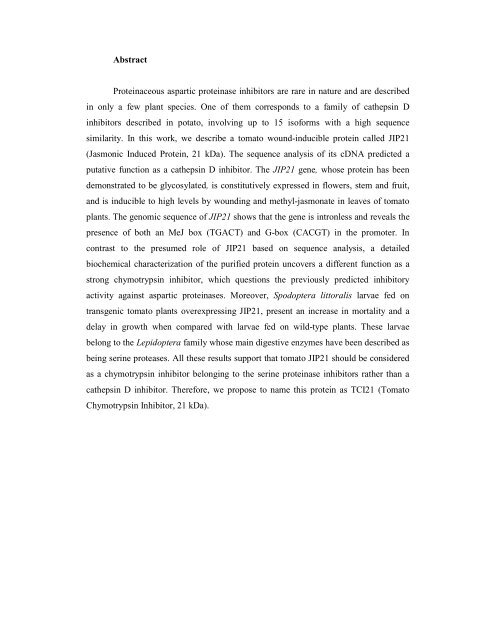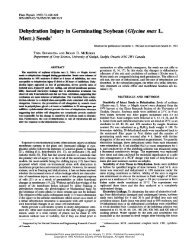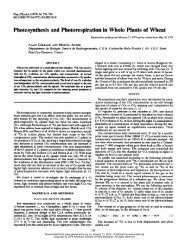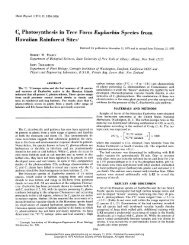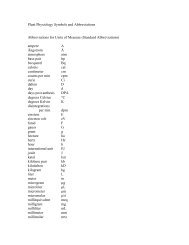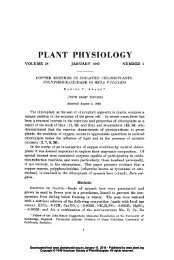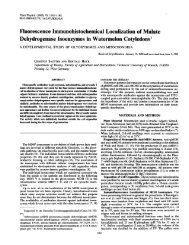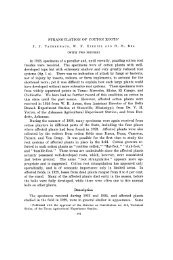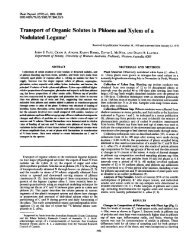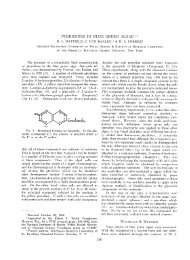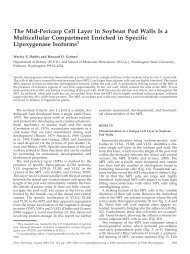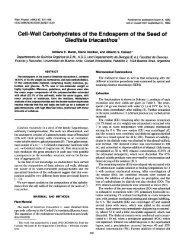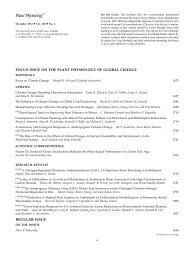Tomato CDI as a Strong Chymotrypsin Inhibitor ... - Plant Physiology
Tomato CDI as a Strong Chymotrypsin Inhibitor ... - Plant Physiology
Tomato CDI as a Strong Chymotrypsin Inhibitor ... - Plant Physiology
You also want an ePaper? Increase the reach of your titles
YUMPU automatically turns print PDFs into web optimized ePapers that Google loves.
Abstract<br />
Proteinaceous <strong>as</strong>partic protein<strong>as</strong>e inhibitors are rare in nature and are described<br />
in only a few plant species. One of them corresponds to a family of cathepsin D<br />
inhibitors described in potato, involving up to 15 isoforms with a high sequence<br />
similarity. In this work, we describe a tomato wound-inducible protein called JIP21<br />
(J<strong>as</strong>monic Induced Protein, 21 kDa). The sequence analysis of its cDNA predicted a<br />
putative function <strong>as</strong> a cathepsin D inhibitor. The JIP21 gene, whose protein h<strong>as</strong> been<br />
demonstrated to be glycosylated, is constitutively expressed in flowers, stem and fruit,<br />
and is inducible to high levels by wounding and methyl-j<strong>as</strong>monate in leaves of tomato<br />
plants. The genomic sequence of JIP21 shows that the gene is intronless and reveals the<br />
presence of both an MeJ box (TGACT) and G-box (CACGT) in the promoter. In<br />
contr<strong>as</strong>t to the presumed role of JIP21 b<strong>as</strong>ed on sequence analysis, a detailed<br />
biochemical characterization of the purified protein uncovers a different function <strong>as</strong> a<br />
strong chymotrypsin inhibitor, which questions the previously predicted inhibitory<br />
activity against <strong>as</strong>partic protein<strong>as</strong>es. Moreover, Spodoptera littoralis larvae fed on<br />
transgenic tomato plants overexpressing JIP21, present an incre<strong>as</strong>e in mortality and a<br />
delay in growth when compared with larvae fed on wild-type plants. These larvae<br />
belong to the Lepidoptera family whose main digestive enzymes have been described <strong>as</strong><br />
being serine prote<strong>as</strong>es. All these results support that tomato JIP21 should be considered<br />
<strong>as</strong> a chymotrypsin inhibitor belonging to the serine protein<strong>as</strong>e inhibitors rather than a<br />
cathepsin D inhibitor. Therefore, we propose to name this protein <strong>as</strong> TCI21 (<strong>Tomato</strong><br />
<strong>Chymotrypsin</strong> <strong>Inhibitor</strong>, 21 kDa).


